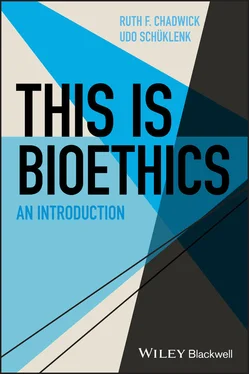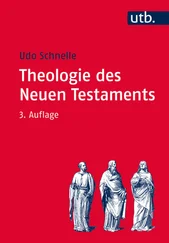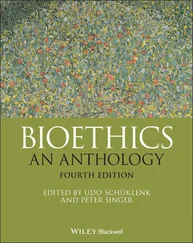1 ...8 9 10 12 13 14 ...20 2.17 Rule‐utilitarianism was proposed by John Stuart Mill 12 as an alternative to Jeremy Bentham’s 13 act‐utilitarianism. He wrote, ‘The moral rules which forbid mankind to hurt one another (in which we must never forget to include wrongful interference with each other’s freedom) are more vital to human well‐being than any maxims, however important, which only point out the best mode of managing some departments of human affairs’ (1871 [1910], 55). Mill aims to achieve the maximization objective by avoiding the criticism leveled against act‐utilitarianism. The idea here is, basically, that we ought to develop rules that cover many different situations and that are known to maximize the good. We then follow these rules without testing in each and every circumstance whether a particular course of action would truly maximize the good. Such a strategy would lend itself to policy making, but clearly on utilitarian logic it could not be considered superior to act‐utilitarianism unless it guaranteed that the application of the rule would maximize the good in all individual cases. Some have suggested that rule‐utilitarianism would eventually have to collapse into act‐utilitarianism if it was serious about the maximization objective. As J.J.C. Smart pointed out, ‘an adequate rule‐utilitarianism would not only be extensionally equivalent to the act‐utilitarian principle (…) but would in fact consist of one rule only, the act‐utilitarian one: “maximize probable benefit”’ (1973, 11–12).
2.18 Preference utilitarianism is an influential variety of modern‐day utilitarianism. The preference utilitarian aim is to maximize the satisfaction of the preferences or interests of all those affected by an action. It is partly based on the acknowledgment that not everything we do is based on the utilitarian twin‐objectives of reducing pain and suffering and maximizing happiness. As John Harsanyi puts it, ‘preference utilitarianism is the only form of utilitarianism consistent with the important philosophical principle of preference autonomy. By this I mean the principle that, in deciding what is good and what is bad for a given individual, the ultimate criterion can only be his own wants and his own preferences’ (Harsanyi 1977, 645). Preference utilitarians hold that individuals are likely the best judges of whatever it is that is in their best interest. The rightness of a proposed course of action then is determined by how much it contributes toward maximizing the satisfaction of autonomous individuals’ preferences, desires or interests. An important condition here is that not all of an individual’s preferences matter, because satisfying any random preferences or desires an individual utters would likely not result in optimal utility. Rather we should aim to maximize the satisfaction of individual preferences and desires that are reflective of a person’s true preferences, that is ‘preferences he would have if he had all the relevant factual information, always reasoned with the greatest personal care, and were in a state of mind most conducive to rational choice’ (Harsanyi 1977, 646).
2.19 Critics query whether it actually is possible to engage in the utilitarian calculus, they doubt whether we have the means to quantify pain and suffering or happiness and well‐being in a meaningful way. They also question whether we can truly balance someone’s suffering sensibly against someone else’s benefits. Concerns have also been raised about utilitarianism’s capacity to allocate resource fairly. Think, for instance, about the example in our introductory chapter: a medical NGO’s goal is to alleviate ill‐health related suffering in the resource poor world. Considering overwhelming need and limited resources, it wants to be super‐efficient. Its decisions on where to deploy its resources are determined by getting the biggest bang for our donors’ bucks as its CEO never tires of stressing when she talks to donors, staff and anyone else willing to listen. In the context of health care, generating good quality life years is typically seen to be the primary outcome health care resources must produce. Our NGO is faced with a practical dilemma: Some of the most vulnerable impoverished patients it could reach are in locations more troubled than those of other equally impoverished patients it could also reach. If the NGO decided to aim for the former group it would end up generating fewer such quality life years than it could generate if it instead decided to provide assistance to the latter group. It simply would require more resources per quality adjusted life‐year generated to succeed with regard to the former group than it would be with regard to the latter group of patients with otherwise equal needs. All other things being equal utilitarians would have to support those people that it can reach more easily. In other words, the most vulnerable would be least likely to get the life‐preserving assistance they so desperately need (Lowry 2009).
2.20 Does this ethic meet our two action guidance and action justification criteria? As we shall see in various chapters throughout this book, it does provide us with clear action guidance, if we have the relevant data available to us. It also provides us with a moral justification for why particular courses of action ought to be followed. Among modern‐day Anglo‐Saxon utilitarians wielding significant influence in bioethics are those in public health Angus Dawson (2005), and Robert Goodin (1989), in the context of animal rights Lori Gruen (2011), and in end‐of‐life issues Helga Kuhse (1987, 1997). Peter Singer is perhaps the most high‐profile of contemporary utilitarian bioethicists (1995). We will come across views expressed by these utilitarians on a range of issues across this book. Jonathan Baron has advocated utilitarianism as the best theory for practical bioethics and defended its usefulness for a whole range of bioethical questions, including end‐of‐life issues, drug research and development, resource allocation justice and a host of other topics (Baron 2006).
2.21 Rule‐based ethics is seen by many as the direct opposite of consequence‐based ethics. It holds that something other than consequences or utility determines the rightness or wrongness of an action. That ‘other’ are absolute rights and absolute wrongs, moral rules that are modeled on the rule of law. They are categorical, that is they are absolutely binding. Rule‐based ethics has risen to great prominence with influential works written by a German enlightenment 14 philosopher, Immanuel Kant 15 . Like utilitarianism his work is universalist and impartialist in its outlook. Kant thought that our ethical decision‐making should be driven by pure reason alone. He did not provide us with much material guidance regarding the substance of ethics, rather he was concerned about the form ethics should take, and he was concerned with the question of what it is that makes an action an ethical action. According to this rule‐based ethic, what is it that makes an action a good action? Kant thought that it is our motivation. We have to act from the right motive, and that right motive is always that we act according to an ethical rule because it is the right thing to do so. That is, we don’t abide by an ethical rule because it would help others, but because we want to abide by said rule for its own sake, we abide by it because we recognize its respect commanding nature. Philosopher John Hardwig is not the only one skeptical of Kant inspired ethics. He wrote, (Hardwig 2000, 9) ‘Although it’s been 10 years, I can still see the student, hands on her hips, as she brought my beautiful lecture on Kant’s ethics to a grinding halt: “Is Kant saying,” she demanded, “that if I sleep with my boyfriend, I should sleep with him out of a sense of duty?” My response: “And when you’re through, you should tell him that you would have done the same for anyone in his situation.” What could I say.’ He then goes on to lament that impartialist ethical theories are something of a no‐go area when you are looking for an ethics of personal relationships. Hardwig isn’t entirely correct here, Kant would have answered the student’s question in the affirmative only if the couple had been in a legal marriage. The student probably would not have considered that response much more plausible.
Читать дальше












